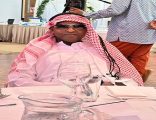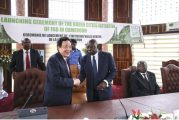Categories
Recent Posts
- Historic agreement between Nigeria and Cameroon to tackle wildlife crime
- Southern Cameroons refugees in Nigeria receive farm seedlings
- Douala: Investment Forum wraps up with honors for investment champions
- Understanding the Biya Francophone regime’s support for the Israeli genocide in Gaza
- US: Prosecution lays out ‘criminal conspiracy’ as Trump’s hush money trial opens
Archives
- April 2024
- March 2024
- February 2024
- January 2024
- December 2023
- November 2023
- October 2023
- September 2023
- August 2023
- July 2023
- June 2023
- May 2023
- April 2023
- March 2023
- February 2023
- January 2023
- December 2022
- November 2022
- October 2022
- September 2022
- August 2022
- July 2022
- June 2022
- May 2022
- April 2022
- March 2022
- February 2022
- January 2022
- December 2021
- November 2021
- October 2021
- September 2021
- August 2021
- July 2021
- June 2021
- May 2021
- April 2021
- March 2021
- February 2021
- January 2021
- December 2020
- November 2020
- October 2020
- September 2020
- August 2020
- July 2020
- June 2020
- May 2020
- April 2020
- March 2020
- February 2020
- January 2020
- December 2019
- November 2019
- October 2019
- September 2019
- August 2019
- July 2019
- June 2019
- May 2019
- April 2019
- March 2019
- February 2019
- January 2019
- December 2018
- November 2018
- October 2018
- September 2018
- August 2018
- July 2018
- June 2018
- May 2018
- April 2018
- March 2018
- February 2018
- January 2018
- December 2017
- November 2017
- October 2017
- September 2017
- August 2017
- July 2017
- June 2017
- May 2017
- April 2017
- March 2017
- February 2017
- January 2017
- December 2016
- November 2016
- October 2016
- September 2016
- August 2016
- July 2016
- June 2016
Featured
 Understanding the Biya Francophone regime’s support for the Israeli genocide in Gaza
Understanding the Biya Francophone regime’s support for the Israeli genocide in Gaza  Poverty under Biya: Cameroonians embrace Chinese language for brighter futures
Poverty under Biya: Cameroonians embrace Chinese language for brighter futures  Cameroon is broken: Who can fix it?
Cameroon is broken: Who can fix it?  Ethiopia: U.S Senator Cardin Statement on the Killing of Bate Urgessa
Ethiopia: U.S Senator Cardin Statement on the Killing of Bate Urgessa  Battle for the Unity Palace: ANNOUNCEMENT!
Battle for the Unity Palace: ANNOUNCEMENT!
Most Commented Posts
 4 Anglophone detainees killed in Yaounde
4 Anglophone detainees killed in Yaounde
19 comments Chantal Biya says she will return to Cameroon if General Ivo Yenwo, Martin Belinga Eboutou and Ferdinand Ngoh Ngoh are sacked
Chantal Biya says she will return to Cameroon if General Ivo Yenwo, Martin Belinga Eboutou and Ferdinand Ngoh Ngoh are sacked
13 comments Anglophone Nationalism: Barrister Eyambe says “hidden plans are at work”
Anglophone Nationalism: Barrister Eyambe says “hidden plans are at work”
12 comments The Anglophone Problem – When Facts don’t Lie
The Anglophone Problem – When Facts don’t Lie
12 comments Largest wave of arrest by BIR in Bamenda
Largest wave of arrest by BIR in Bamenda
10 comments
Latest Tweets
Error: access keys missing in Themify > Settings > Twitter SettingsFeatured
-

Historic agreement between Nigeria and Cameroon to tackle wildlife crime
-

Southern Cameroons refugees in Nigeria receive farm seedlings
-

Douala: Investment Forum wraps up with honors for investment champions
-

Understanding the Biya Francophone regime’s support for the Israeli genocide in Gaza
-

US: Prosecution lays out ‘criminal conspiracy’ as Trump’s hush money trial opens
-

FAO formally launches Green Cities Initiative in Cameroon
-

Football: Barcelona wants Clasico replay if Yamal ‘ghost goal’ call wrong
© Cameroon Concord News 2024
10, February 2020
Cameroon’s Twin Elections: How were they won? 0
by soter • Cameroon, Headline News, News
Cameroon’s so-called advanced democracy has continued its onward march towards a man-made catastrophe despite all the warning signs. While decency, responsibility and transparency are the hallmarks of genuine democracies around the world, Cameroon’s democracy has continued to be mired in corruption, controversy and irresponsibility for more than a quarter of a century.
While the natural tendency for a genuine democracy is to innovate and streamline processes and procedures, Cameroon’s democracy manufactured by its president, Paul Biya, has put the country in the spotlight for all the wrong reasons.
All elections held in the country from 1990 have been marred by fraud and lack of transparency. In 1992, the American election watchdog, the National Democratic Institute (NDI), documented evidence of fraud in the presidential elections and the Biya government declared the famous institute persona non grata in Cameroon.
The acts of fraud during these elections were so crude to the point that even the blind could see them. Elections were organized by the ministry of territorial administration. The minister was a member of government of the incumbent whose cardinal objective in life at the time was to stay in power in order to protect acts of corruption and fraud committed under his one-party state.
Voters’ registration was the responsibility of local chiefs and other government officials who were paid by a government that was still struggling to shake off the one-party hangover. The main opposition party leader was John Fru Ndi, a man who struck fear in the minds of one-party state believers. His supporters were not allowed to register for the elections freely. The presidential election was more of a war than a normal democratic process, with the ruling party preaching tribalism and promoting hate speech.
Anglophones living in many parts of East Cameroon were cut out of the electoral process because their loyalty was obvious. It was the best way to guarantee the incumbent a victory. Many of those who ever got registered never had their voters’ cards and even the receipts issued to them after registration were rejected on polling day.
On voting day, polling stations were changed at short notice. Voters were completely confused. Opposition election officers were refused entry into polling stations. Ballot boxes were stuffed with fake ballots and intimidation by the ruling party was clearly on the menu.
The results were compiled by the ministry of territorial administration and released by the Supreme Court whose judges were appointed by the incumbent. The signs of corruption and fraud were obvious except to members of the ruling party who thought more about their personal interest than about the country’s paramount interest.
Almost 30 years after, the ruling party, the CPDM (Cameroon Peoples Democratic Movement), a party that is only democratic in name, has continued to use the same tactics to perpetuate itself in power. Yesterday’s elections were not different from what Cameroonians have witnessed for close to 30 years.
The context might have been slightly different due to the insurgency playing out in the two English-speaking regions of the country and the general voter apathy because of the past, but the ruling party has still employed the same tactics to sustain itself in power. The results of yesterday’s elections were known long before the voting took place.
The ruling party had eliminated many opposition parties in many constituencies around the country. All opposition parties fielded only 45 candidates in the parliamentary elections out of 180 seats. This implied that the CPDM had already won 135 seats even without any real voting.
In Cameroon, there is no strict campaign financing laws. The CPDM government grants very little financial assistance to struggling opposition parties for them to be able to participate in the elections. It grants itself the state treasury and uses military and state vehicles for its campaigns. In the two English-speaking regions, government officials used military trucks and armoured cars to go to the regions just to rig the elections.
The objective is not to convince the population, but to demonstrate that elections actually took place across the country. Fuel for the trucks, drivers of the vehicles and maintenance costs are all being borne by the poor taxpayer whose interest is never considered as a priority.
While ruling party officials enjoy all of this, opposition party candidates simply avoid the war zone and only ruling party election officers really go to the polling stations. The outcome of the election is therefore not in doubt.
In many polling stations, only government soldiers voted. Prisoners from other regions were hauled like cattle to the two English-speaking regions for them to vote for the ruling CPDM. In Buea, Bamenda, Kumba, Mamfe and other cities in the two English-speaking regions, many young men were arrested and kept in jail until after Election Day. They were released after having voted for the ruling party. Cameroon’s advanced democracy is making giant strides; unfortunately it is making giant strides towards dictatorship and monolithic thinking.
The ruling party, known for its Machiavellian mindset, had orchestrated the real fraud, not necessarily in the polling stations, but during the registration process. Three hours after the close of elections, some of its members could be seen celebrating the party’s victory in front of Ayaba Hotel in Bamenda like a group of monkeys that has run into a bunch of bananas.
According to the country’s electoral law, only the government manufactured elections body, ELECAM, is supposed to declare election results and anybody found declaring results without the approval of ELECAM shall be found guilty of transgressing the country’s electoral law.
But ruling party officials in the Northwest region were releasing their own results yesterday and nobody has been arrested or summoned to appear before any constituted government body for them to answer for their reckless behavior. Cameroon’s laws are simply selective, and they never find ruling party officials guilty of any crime.
The ruling party has won by a wide margin in the two English-speaking regions of the country, at least according to the party’s estimates. The population of those regions simply did not participate in the elections. They have been displaced, with more than a million of them living across the country as internally displaced persons, while a similar number is hiding in the bushes or is in Nigeria because of the government’s violent military response to the insurgency.
The population of the two regions also respected the lockdown decreed by the Southern Cameroons Interim Government that is living abroad and this has actually ruffled officials of the ruling party as the internet is awash with videos and pictures of towns abandoned by civilians who totally disagree with the way the regime has ruled the country for more than three decades. But the CPDM will surely score a 100% in both regions.
It is a party populated with people who have many skeletons in their cupboards. This is a party that started off with a slogan that captured the imagination and attention of Cameroonians. Rigour and Moralisation made the party look like a product made in Heaven. But over the last 35 years, Cameroonians have seen more corruption and demoralization spreading across the country like wildfire.
The CPDM might have won the election, but its battle to win hearts and minds, especially in the two English-speaking regions of the country, will be the one that will be the most challenging. The people of these two regions have made up their minds not to listen to the political heresy the ruling party preaches. Despite the victory it has arrogated to itself, the CPDM government, also known as a crime syndicate, will not govern Cameroon in peace.
Cameroonians have become more intelligent and the dignity, for which Anglophones are known, is gradually spreading to other regions of the country. Cameroon is in for a chaotic ride into the future. The road ahead is long and bumpy, and the drivers of the vehicle are old and inefficient. The chances of the vehicle ending up in a ravine are huge. Only the international community can pull this country back from the brink.
By Soter Tarh Agbaw-Ebai in the United Kingdom and Rita Akana in Yaounde